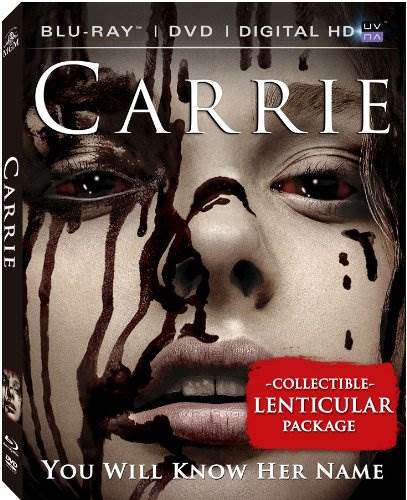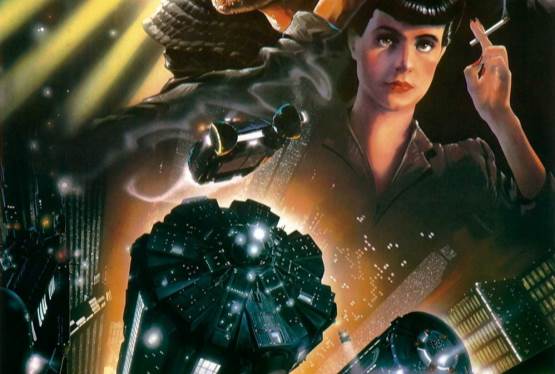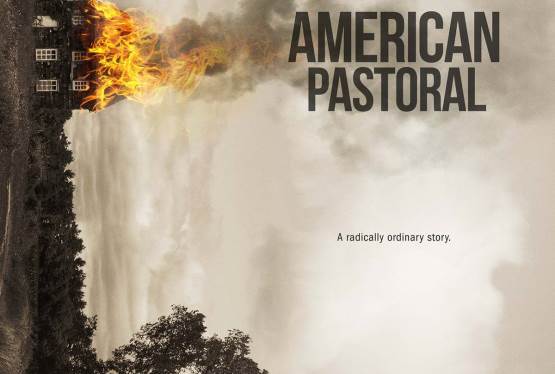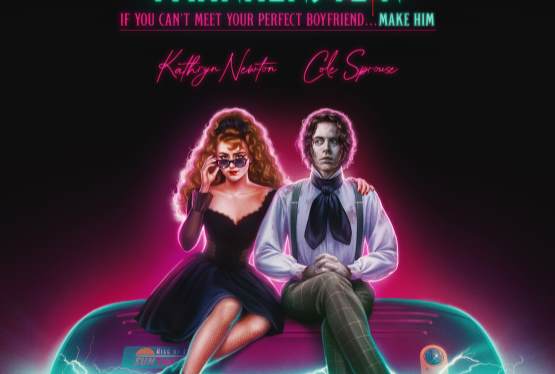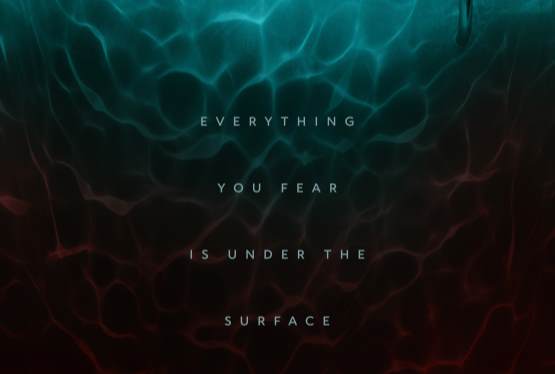Interviewed about the 2010 remake of A Nightmare on Elm Street, actor Jackie Earle Haley was asked why anyone would want to step into the shoes of Robert Englund in the iconic role of Freddy Krueger. Haley gave an interesting answer. He pointed out that the studio was going to remake the film whether or not he took the role. Why not see what he could do with it?
Director Kimberly Peirce must have thought something similar when MGM and Screen Gems offered her their remake of Brian De Palma's 1976 classic Carrie. Even Stephen King, who isn't known for his fondness of film adaptations of his novels, admired De Palma's film and saw little reason to redo it. "The real question is why, when the original was so good? I mean, not Casablanca, or anything, but a really good horror-suspense film, much better than the book." In fairness, King did say he'd be interested in what David Lynch or David Cronenberg might make of the story.
But it was Peirce who got the assignment, and she dutifully dug into King's novel, looking for elements that might allow Carrie to be reinvented for a later era. So in Peirce's version, we get cyber-bullying, a far more sympathetic-even pathetic-portrayal of Carrie's mother, Margaret White, and a more assertive Carrie who quickly moves from being a passive victim to a predator bent on revenge. Throughout the extras, Peirce refers to the film as a "superhero origin story".
What Peirce failed to accomplish, though (and what De Palma achieved in spades), is to weave the luxuriant spell of attraction and repulsion that is the distinctive quality of great horror. Her film hits all the right beats, contains solid performances and has effects of which De Palma could only have dreamed in 1976, but it never gets under the viewer's skin.
Carrie White (Chloë Grace Moretz) is that kid at school: the shy one, who stands apart, doesn't fit in and is an easy target for abuse. Most such unfortunates never get even, but what if one of them had hidden powers? That premise was an essential element in the 2008 Swedish film Let The Right One In (remade in 2010 as Let Me In, also starring Moretz), and it's key to Carrie's plot, in which a bullied nobody is revealed as a telekinetic super-being who can kill with a thought. Carrie doesn't know this about herself when the film opens, because her powers don't mature until puberty, which hits with a vengeance when she gets her first period during a locker room shower after gym class.
Carrie thinks she's dying when the blood begins to flow, because her deeply disturbed mother, Margaret (Julianne Moore), has withheld from her daughter all knowledge about sex and womanhood in a futile attempt to prevent Carrie from growing up. Margaret could easily be dismissed as a religious nut, but Peirce and Moore go out of their way to show her as a borderline psychotic so possessed by terror that she constantly engages in self-injury to control her fear. Her "religion" is part Christianity, part self-invented sexual obsession. In De Palma's film, Piper Laurie transformed this character into a terrifying grotesque, but Moore locates the pathos and the sorrow in Margaret White. She might even have made Margaret sympathetic-in a different movie.
Carrie screams for help in the locker room, and her classmates mercilessly mock her ignorance and pelt her with tampons, until the gym teacher, Ms. Desjardin (Judy Greer), comes to her rescue. The leaders of the she-wolf pack are best friends Sue Snell (Gabriella Wilde) and Chris Hargensen (Portia Doubleday), whose very different reactions to the incident will lead to disaster. Sue regrets her treatment of Carrie and tries to make amends, while Chris doubles down on her hatred and seeks to treat Carrie even more cruelly. The respective efforts of the (now former) best friends reach their conclusion at the school prom, where Chris and her boyfriend Billy Nolan (Alex Russell) humiliate Carrie in front of the whole school, little suspecting that the girl they thought was a wispy nobody has been practicing her new-found skills at moving objects, starting fires and self-levitation.
This is perhaps the most dramatic difference between Peirce's vision of Carrie and De Palma's. In De Palma's film, Sissy Spacek portrayed Carrie as a dreamer lost in her thoughts, even when she began to realize the extent of her capabilities. Her telekinetic effects often seemed to surprise her, as if she didn't expect her daydreams to become reality. Moretz's Carrie, by contrast, begins experimenting with her powers as soon as she discovers them. By the time she's reached the prom, she has already used them to emancipate herself from her mother, and when she takes her revenge on the school, she does so deliberately, pointedly, and with focus. In the final reckoning with Margaret, Spacek's Carrie reacts spontaneously and then is shocked at the outcome, but Moretz's Carrie makes a deliberate choice. It's as if Peirce couldn't envision a passive heroine after decades of butt-kicking female action stars and plucky girl survivors in horror films.
The problem is that a "strong" Carrie becomes just another entry in a long line of generic lead characters. De Palma's and Spacek's Carrie was memorable precisely because there was never anything strong about her; unlike Peirce, they weren't making a superhero origin story. In Peirce's film, Carrie's heroism extends all the way to the end, in ways I will leave for the viewer to discover. As for the "too shocking for theaters" alternate ending included on the Blu-ray, let's just say that the only thing shocking about it is how bad it is. Most deletions belong on the cutting room floor, and this was one of them.
The image on Fox/MGM's 1080p, AVC-encoded Blu-ray reflects the noiseless clarity one expects from today's DI-processed digital productions, though it is sometimes a bit less detailed than one might expect from a 4K image down-converted for Blu-ray. The colors are vivid and varied, ranging from the cool blues of the water volleyball match where we first see Carrie, before any manifestation of her powers, to the increasing presence of reds and dark browns as her powers grow and mature. Nighttime blacks, which are crucial in the final act, are solid and deep, and the white levels of bright lights and fire in the critical prom sequence are never overstated. Carrie's lossless DTS-HD MA 5.1 track provides plenty of excitement as the telekinetic title character gradually masters and then deploys her formidable powers. Structures creak and groan, glass breaks, electrical fixtures overload and shatter, and doors slam and crack-and all of it happens as loudly as possible, to the point where you have to wonder why everyone doesn't suspect there's something really strange happening in this small Maine town. The prom scene and its aftermath are a tour de force of sound editing as well as of CG effects, as Carrie's vengeance fills the surround field with crashes, flames, electrical charges, and the screams of the terrified crowd.
Special Features:
- Commentary with Director Kimberly Pierce: For the most part, Pierce sticks closely to the action on screen, commenting on the themes at play in the particular scene. She also comments on some filming and effects techniques and the actors' performances. It's an interesting enough commentary, but it doesn't reveal any hidden layers to the film.
- Alternate Ending: The disc has been formatted to allow selection of either the theatrical cut with its standard ending or with the alternate ending.
- Deleted/Alternate Scenes (w/optional commentary
- Tina on Fire Stunt Double Dailies (w/optional commentary) These dailies show how the death-by-fire at the prom was done with real fire, rather than CG and trick photography, using a recently developed technique involving bandages and protective gel.
- Creating Carrie The participants in this making-of documentary include Pierce, Moretz, Moore, Wilde, Greer, and producer Kevin Misher. They discuss King's novel, themes that the remake tried to emphasize, and the actors' preparation for their roles.
- The Power of Telekinesis The director, producer, and cast discuss the portrayal of telekinesis in the film.
- Telekinetic Coffee Shop Surprise In a PR stunt to publicize the film, the 'Snice Coffee Shop in the West Village in New York City was rigged to stage an outburst of telekinetic temper by a real-life "Carrie", as cameras recorded the crowd's stunned reaction.
- Theatrical Trailer "In every neighborhood, there is one family . . . "
- Sneak Peak: Robocop, Paranoia, MGM's 90th Anniversary
Obvious care and craftsmanship went into the new Carrie, but I suspect that anyone familiar with the original will watch it ticking off the similarities and differences between it and De Palma's version rather than being drawn into the world of the film. Viewers new to the story may be entertained, but I suspect they may wonder what all the fuss was about. The Blu-ray satisfies on a technical level, but what MGM and Fox should really be working on is a remaster of De Palma's original. That would be recommended. This one is up to you.

